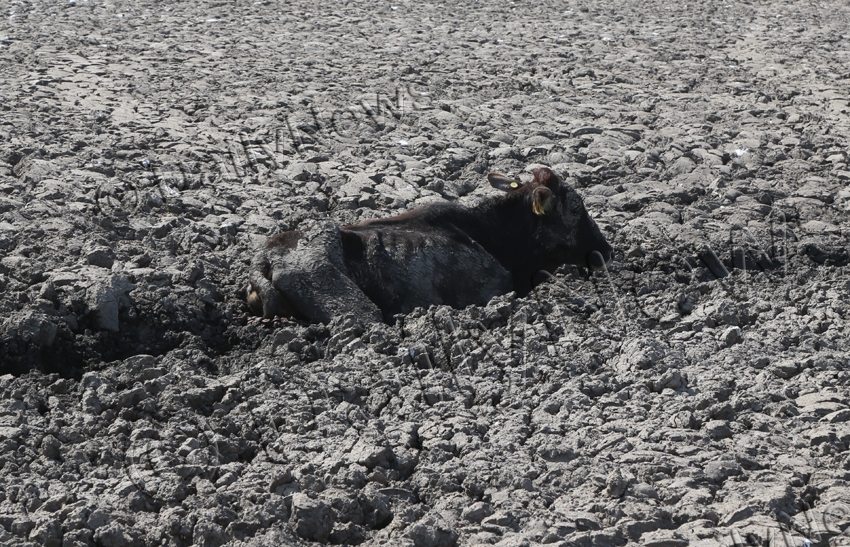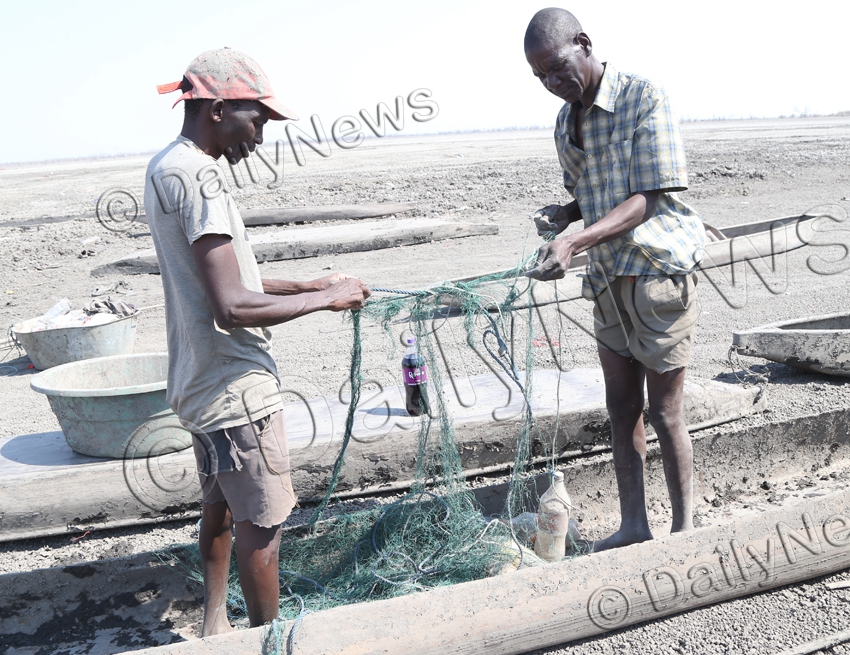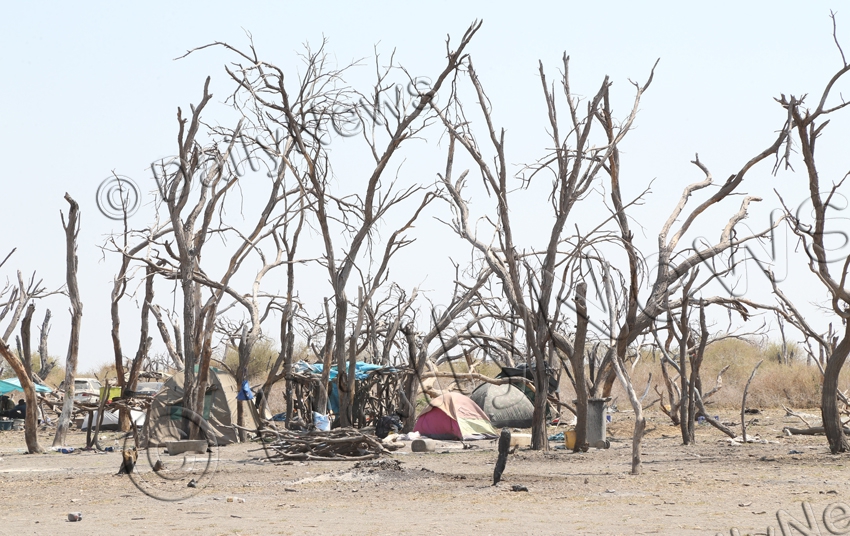Pain agony for farmers fishermen in Ngami
19 Sep 2019
Looking up from the banks of the dry lake-bed, the pale blue sky yawns cloudlessly and the extremely heavy humid air is suffocating.
There is no other sound except the occasional sounds of the marabou stork birds or the gube in the local vernacular .
For the past few weeks the birds had been devouring on chunks of decomposed cow carcasses.
To those who live here and observe its daily behaviour, the bird eats anything it can kill and swallow.
The gube is known for feeding on animal carcasses.
On the other side of the lake, the gube birds are carefully stalking and waiting to pounce on hapless cows and donkeys stuck in the mud, waiting for death.
Hundreds of other cows had already succumbed to this slow and painful death in the past weeks, a sight that leaves a lump in the throat.
During happier times the lake was home to an innumerable species of flora and fauna.
Lilies would float majestically on the fringes, small fish and swimming against a strong wave that threatened to push them out of the lush waters, flapping their tails in happiness.
Today as the stench stabs through the air, a fully grown African fish eagle springs from its makeshift nest in the tall and dead mogotlho tree with a somber high pitch whistle signaling hunger, despair and hopelessness.
At the far end of this vast dry land Ngwako Rebakae struggles to provide for his remaining cows.
Dozens had been agonizingly swallowed by the mud or xhobo in the local language.
Patience is the order of the day as it takes a span to fill a bucket to the brim.
The youthful farmer is from Thollamoro cattlepost just on the fringes of Lake Ngami.
Rex Moshapa and Alex Mothibi are fishermen whose livelihoods depended largely on the once productive fishery resource provided by Lake Ngami.
They find themselves in a precarious condition because fish is an important component of their economic livelihoods. And it is nowhere to be found.
They now have to plod and wade through the mud to salvage the last twene or catfish for their survival.
The two outspoken men seem to be less worried about the life threatening risk they are about to take. “Re kile ra bo re tshela gole monate ebile bare reboletse bare dio tsa lona ke tseo!” reminisces Mothibi as he pulls his mokoro into the thick mud.
Moshapa arrived at Lake Ngami four years ago from Mmadikola in the Boteti region. It had been a lucrative market for him as he sold dry fish as far as Zambia and the DRC.
On a good day he is able to bring to shore about 140 twene fish.
For Albert Amos of Botlhatlogo, Lake Ngami has been the life blood of his community.
By his own admission the drying up of the lake killed his plans. “Re setse re iphotlhere” he added with an angry rasp to his voice. In Nxaraga, wildlife has not been sparred either.
The once scenic Kunyere River passes through the village in spectacular fashion providing an attractive view.
The once beautiful streams that form the river network which ends up at the Lake are now a shadow of their wet-season selves.
The lush green vegetation on the river banks is now being baked by the soaring temperatures.
Untamed wild animals such as hippos, crocodiles and elephants seem to have developed a sense of belonging with domesticated animals.
Crocodiles now share drinking spots with goats. Elephants trickle down too for a sip of the few drops of the source of life. Hippos which had engaged in fierce battle for their territory are now lying lifeless in the muddy waters.
Ujandjera Hange, a farmer in Nxaraga said the stack of dead hippos at the river was a health hazard for their cattle.
He said it was also a tall order for them to take proper care of their livestock as encounters with wild animals such as buffaloes and wild dogs might turn fatal.
Records indicate that Lake Ngami was dry for the decade in 1900 to 1910, again in 1930 and from 1973 to 74.
The lake almost dried in 1960 then flooded but was dry again in the 1980s.
Around 2000 water from Kunyere River started to reach the lake while on the western side Nhabe River also provided inflows. This produced a high scale fish resource, and this attracted fishermen.
The current dry spell might result in a couple of years of despair before the lake springs back to life once again.
Chairperson of Lake Ngami Conservation Trust Sekano Bodio said upon realization that the water levels at the lake were declining they devised alternative means to keep going.
The Trust which was established in 2013 is mandated with conserving natural resources in the Ngami region.
Bodio said as fishing died a natural death sometimes back they had other alternative income generating projects such as charcoal project.
The trust has already sold over 1000 bags and the project is ongoing at different sites along the lake.
Quizzed on the exportation of the dry twene fish Bodio said he was aware of its fishing and they allowed free permission to those who fell under the precinct of Ngamiland. ENDS
Source : BOPA
Author : Baleseng Batlotleng
Location : NXARAGA
Event : INTERVIEWS
Date : 19 Sep 2019








